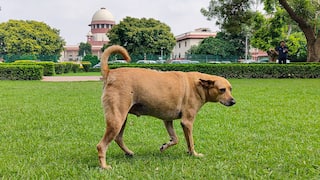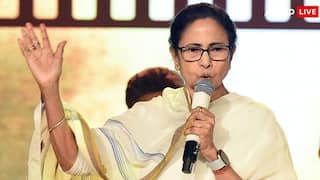Explorer
EXCLUSIVE: Nine out of ten children in Uttar Pradesh do not get adequate diet, reveals NFHS data

Only 5.3% children in UP within the age group of 6 – 23 months receive an adequate diet Image: NFHS (Image: Representational/PTI)
New Delhi: Nine out of every ten children within the age-group of 6–23 months do not get adequate diet in Uttar Pradesh, revealed National Family Health Survey (NFHS) data recently. The latest National Family Health Survey (NFHS 4, 2015-16) data highlighted, in a series of startling revelations, the nutrition and health status of children in the state. It found that the the nutrition and health status of kids remain critically low in comparison to the national standard, even though the trends showed some improvements over the previous NFHS data published almost a decade ago. According to the trend study done by Child Rights and You (CRY), based on the latest NFHS findings, only 5.3% children in UP within the age group of 6 – 23 months receive an adequate diet. This is one of the lowest in the country. On the other hand, Tamil Nadu does comparatively better at 31%. The NFHS data on child feeding practices further suggest that three out of four children in the state are not breastfed within the first hour of birth while less than half are exclusively breastfed in the first 6 months. Elaborating on the poor nutritional status of children Subhendu Bhattacharjee, Programme Head, CRY North said, “According to recent studies on child health and nutrition, providing infants with adequate diet in terms of quality and quantity, comprising of four or more nutrient groups and a minimum meal frequency supported by both solid and semi-solid depending on the age of the child, is extremely crucial, and a non-negotiable in ensuring a healthy start to a child.” “Having the newborns breastfed within the first hour of birth is another critical indicator in child nutrition, as colostrum (the first milk of the mother), extremely rich in nutrients and antibodies, is highly crucial towards ensuring the basic nutrition and immunization they require at the very beginning of their life,” Mr. Bhattacharjee added. Malnourishment in early years is also directly linked to maternal health. Not getting quality ante natal care and special nutritional requirements for expecting and lactating mothers can negatively impact the health of the child However, despite the focus on early care, only 6% of mothers in UP had access to full antenatal care services. Moreover, more than one-third of the total births in the state continue to remain home-births thus compromising on the important aspect of post-natal care. NFHS findings give three sets of data as child malnutrition indicators NFHS findings give three sets of data as child malnutrition indicators – stunting (low height for age), wasting (low weight for height) and underweight (low weight for age) for children under the age of 5. Though the figures for the three parameters have come down, the decrease has been very marginal and unsatisfactory given the time period of ten years since the last survey. The state still has 40% of its children (U5) underweight. Anemia in children is found to have decreased in the state, but still remains worryingly widespread. The analysis highlights that almost two-third of children within the age of 6 – 59 months are acutely suffering from anemia. Furthermore, UP continues to have the highest number of child mortality figures in the country with Infant Mortality Rate(IMR) of 64 deaths per 1000 live births and Under 5 Mortality Rate of 78 deaths per 1000 live births. As the latest NFHS data reveal, Uttar Pradesh has done fairly well in several child health and nutrition indicators like improving rate of institutional delivery, immunization cover, and treatment of critical childhood diseases, the progression rate of critical indicators like child nutrition, which has direct linkage with children’s overall growth and development remains far below than expectation. Soha Moitra, Regional Director (North), CRY – Child Rights and You said, “The NFHS is not just a reflection of the state of health and nutritional well-being of children and expecting mothers, but it also provides the direction for corrective measures in state policies and programmes on child health and malnutrition. For Uttar Pradesh, the data so released reinforces the need for the state to address nutritional security of children and expecting mothers on a priority basis.” “In the context of addressing child malnutrition, universalisation of Anganwadi Centres and a robust system of growth monitoring are measures that can lead us to lasting solutions to such issues”, Moitra added.
Related Video
Breaking News: Maharashtra Politics Shifts: Congress Suspensions Boost BJP Ahead of Local Body Polls
Follow Breaking News on ABP Live for more latest stories and trending topics. Watch breaking news and top headlines online on ABP News LIVE TV

Capt Kaustubh Rana (Retd)
Opinion




































